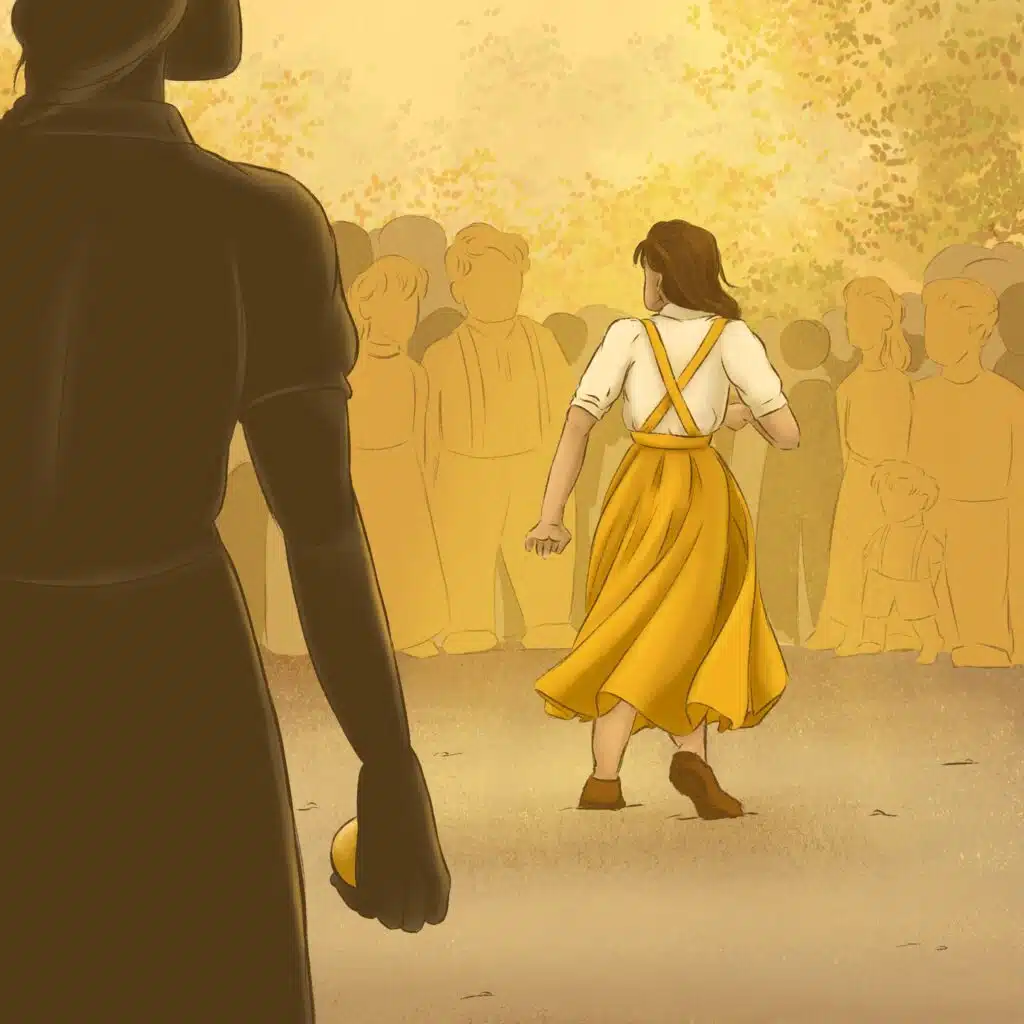By Leah Eichler,
Shirley Jackson’s The Lottery first appeared in print in The New Yorker in the June 26, 1948 issue and according to legend, generated more letters to the editor than the magazine had ever experienced before (and possibly, since.)
The Lottery is arguably the most widely known work of short fiction in American literature. I took an informal poll and it appears it was universally taught (in Canada and the U.S.) in elementary or middle school. If for whatever reason you missed the day in class when The Lottery was discussed, you can find the film here.
I remember reading the story in elementary school and it never left me. It welcomes you in like a warm, sunny day as Jackson describes the idyllic village, where everyone knows each other and where school had just recently ended. But early on, beneath the surface, violence lurks — its reference so fleeting, it’s easy to skim over. The stones are mentioned five times in quick succession, as if the author is hitting us on the head, reminding us that this quiet story is about to become deadly.
One of the things that still strikes me about The Lottery, even after all these years, is the casualness of it. The box, which delivers the death sentence is remarkable in its unremarkableness. One year it’s in a barn, the next in the post office and the next on a grocery store shelf. It’s not the original box but that doesn’t matter, it’s old enough to carry a tradition none of them can adequately explain or remember.
Even the villagers arrive at the lottery with an eerie casualness, after washing their dishes and making small talk. The kids play with their friends. Everyone knows that in the next two hours, one of them will be dead but it doesn’t matter because that’s the way it has always been.
Although the villagers had forgotten the ritual and lost the original black box, they still remembered to use stones.
As in the story, we forget how immune we have become to violence. It happens, and for the most part, we just move on. In the United States, 2023 is on target to be the deadliest year ever for mass shootings. Add to that number the deaths resulting from homicide and suicide and the numbers are startling. (Just replace the black box in the story with a gun, and with very few changes, it’s easy to see how it would read.)
I’d dare say we even love violence. We even want to see billionaires rumble.
In Canada, we like to act smug when it comes to violence but even here, violent crime is at an all time high. Just last week, as school was ending for most (as in the story,) a student charged into a gender studies class and stabbed a professor and two students at the University of Waterloo. Many Canadians believe this is just the start, with even more violence on the horizon.
So what do we do? We read the news, shake our heads, and go about our day. Why question what has always been there? (How prescient Jackson was!)
As in the story, many accept that there’s logic to the violence, it comes from somewhere (the Second Amendment, the rise of shooter video games, a burgeoning mental health crisis left unchecked, the breakdown of our social fabric … you name it) but we seem to have forgotten the exact root of it and can’t really be bothered to examine it too closely.
The most important thing is to keep traditions at all costs, and to never change. The violence is acceptable so long as it’s familiar.
“They do say,” Mr. Adams said to Old Man Warner, who stood next to him, “that over in the north village they’re talking of giving up the lottery.”
Old Man Warner snorted. “Pack of crazy fools,” he said. “Listening to the young folks, nothing’s good enough for them. Next thing you know, they’ll be wanting to go back to living in caves, nobody work any more, live that way for a while. Used to be a saying about ‘Lottery in June, corn be heavy soon.’ First thing you know, we’d all be eating stewed chickweed and acorns. There’s always been a lottery,” he added petulantly.
After all these years, it still amazes me what Jackson can accomplish with so few words. Even when the lottery is decided, and a family is chosen, the victim argues back. Here, the dialogue is really important because despite knowing what comes next, the victim doesn’t dare undermine the value of the lottery itself — it remains above inquiry. Rather, she argues about the technicality of the specific selection that day. They didn’t choose right, she insists. They should choose again. The violence is fine so long as it happens to someone else.
That’s the dark secret. No one likes violence, but we accept it until it happens to us, or our loved ones. We read the news then count our blessings, grateful that the violence has passed over us one more time. Until one day it doesn’t. That’s the beauty of the story. It exposes the lies we tell ourselves. That we are safe in our communities, that our traditions will protect us, that our kids can be kids without altering their environment in anyway. The Lottery taught us that the world is a scary place, and it is. But the lesson stops there. Perhaps some Jackson fan will write a follow up, a companion piece of fan fiction that tells us how to change, how to stop being immune to the violence. Let’s see if our imagination will allow it.

